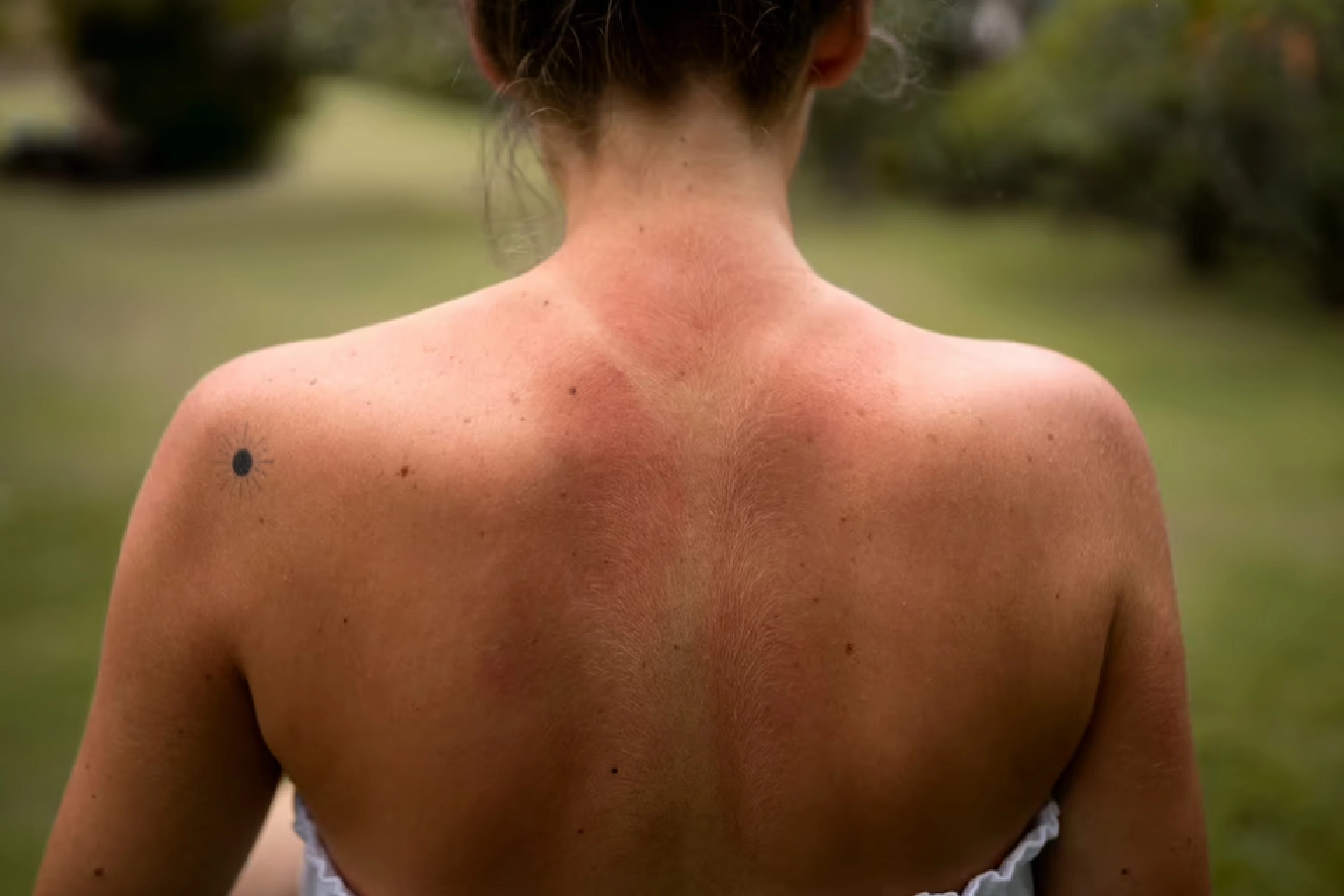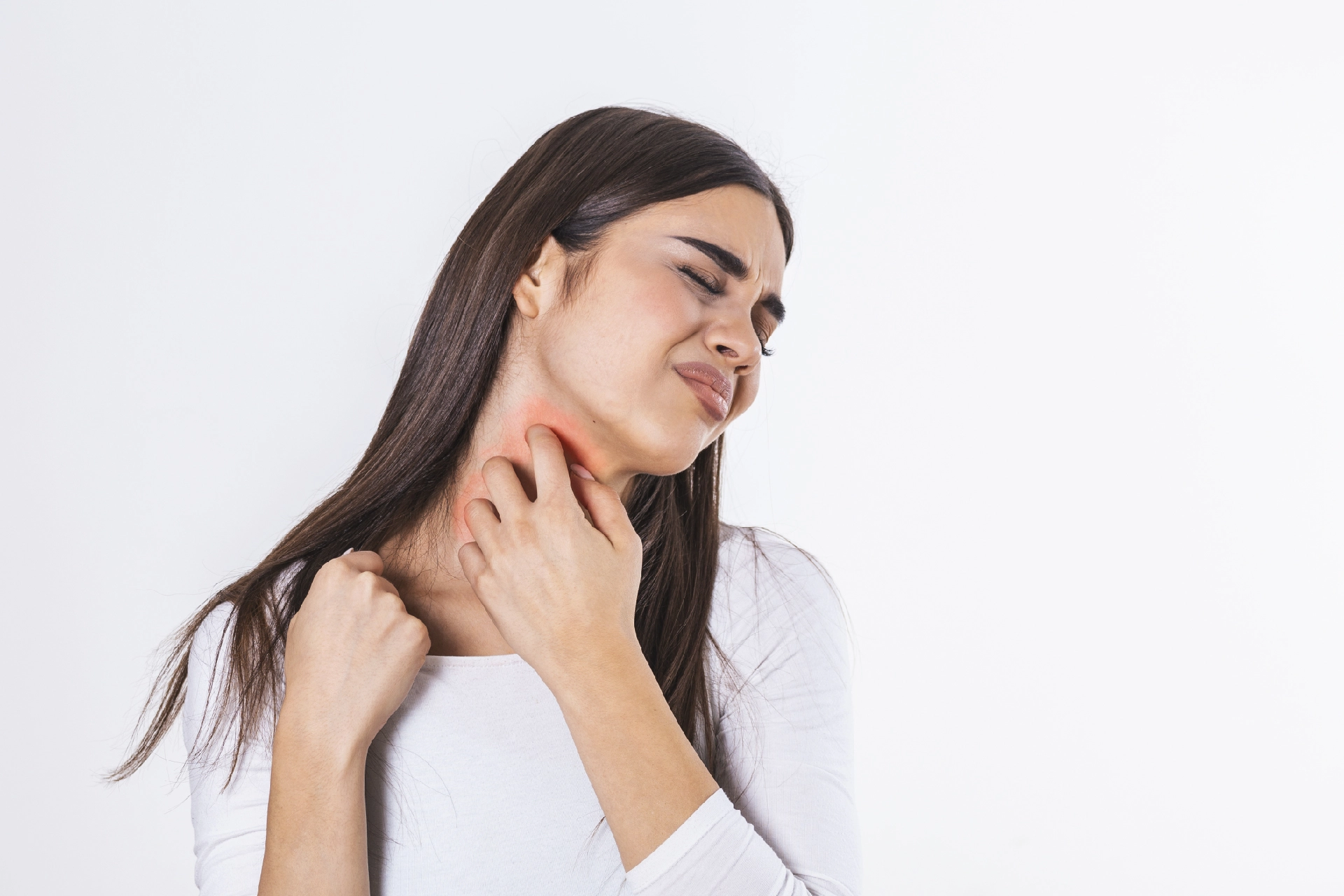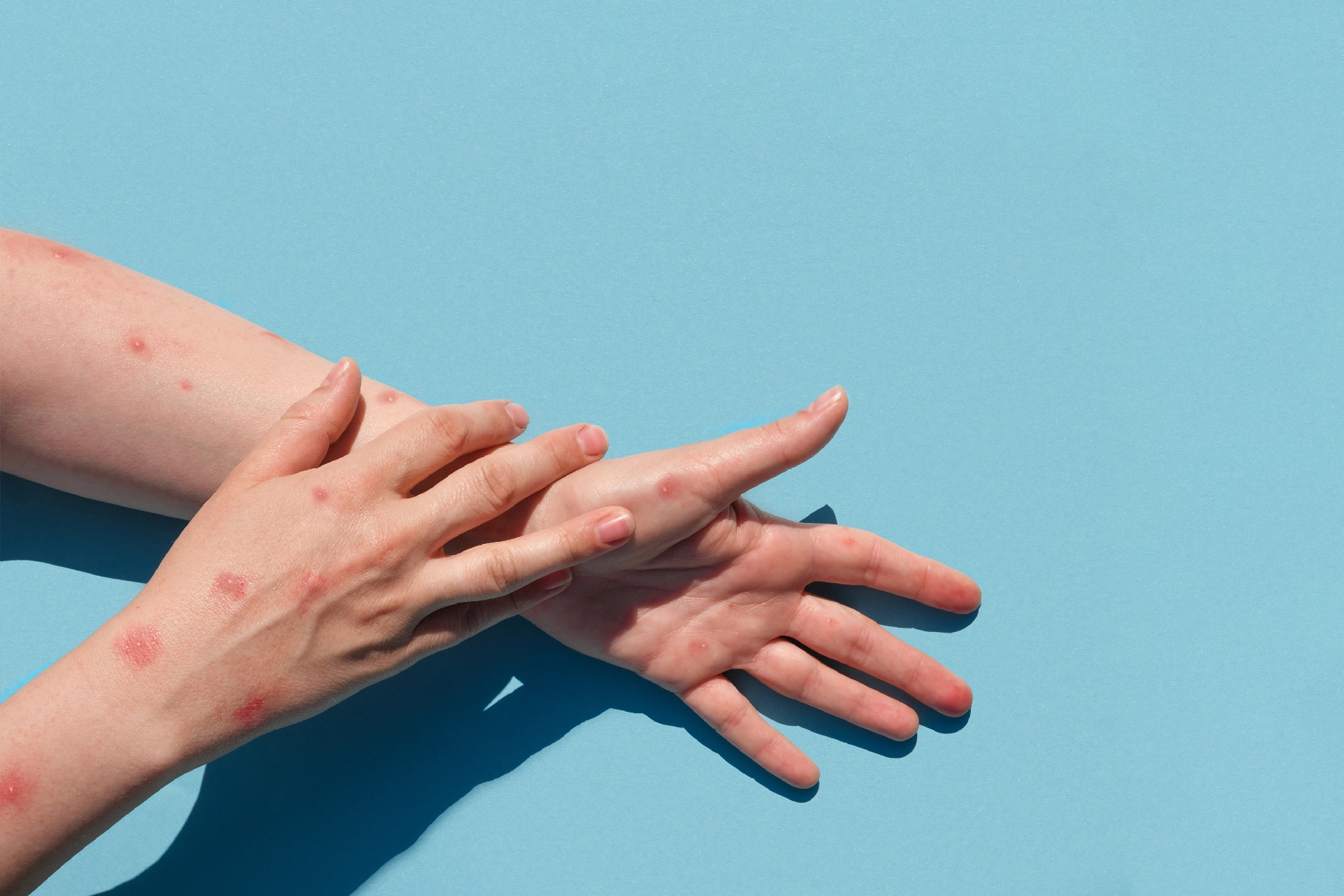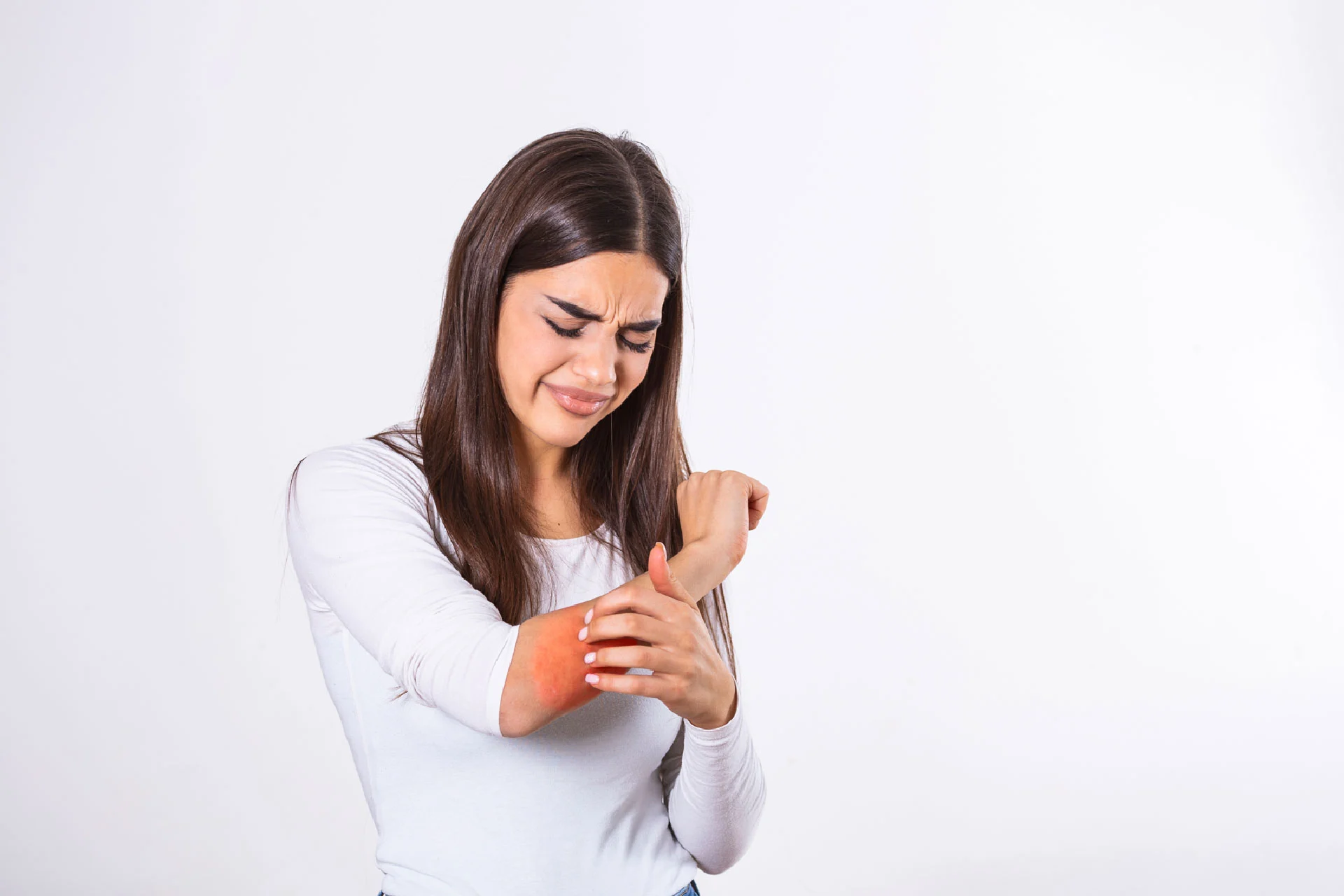Prosthodontics | 7 min read
Cold Urticaria: Symptoms, Types, Home Remedies and Treatment
Medically reviewed by
Table of Content
Key Takeaways
- Cold urticaria may appear if your skin is exposed to cold temperatures
- Redness, itching, and rashes are some cold urticaria symptoms
- Applying aloe vera gel is an effective cold urticaria home remedy
Cold urticaria is an allergic reaction affecting your skin when it is exposed to cold temperatures. It triggers mast cells, a type of immune cell in the skin. The reaction leads to the release of chemicals like histamine. Major symptoms show within a few minutes of the exposure to cold and include:
- Redness
- Itching
- Rashes
Cold urticaria is the medical term for the hives that form on your skin once you are exposed to chilly temperatures. Essential (acquired) cold urticaria and familial (hereditary) cold urticaria are the two types of this disorder.
Essential cold urticaria forms about 1% to 3% of all urticaria cases and is mostly diagnosed in young adults [1, 2]. This affects both men and women equally. Read on to learn more about this rare reactive skin disorder.
Types of Cold Urticaria
There are generally two types:
Acquired Cold Urticaria
People with no genetic history of cold urticaria suffer from this type. Its symptoms appear quickly, within a few minutes, and disappear quickly, within two hours
Familial Cold Urticaria
If you have a family history of cold urticaria, you are more likely to suffer from it. Its symptoms don't appear quickly. Often, it takes from 30 minutes to 48 hours for the rashes to show up. And the symptoms may last for up to two days.
Additional Read: What is Psoriasis?Who is Most Likely to Get Cold Urticaria?
Anyone can get cold urticaria, even if they don't have a genetic history. However, most people suffer from acquired cold urticaria; whereas the familiar cold urticaria is rare. Moreover, cold urticaria might be the symptom of an underlying disease, including chickenpox, syphilis, and cancer.

Cold Urticaria Causes
This is caused when you are exposed to cold temperatures such as going outside in chilly weather, swimming or bathing in cold water, or sitting in an air-conditioned place. This exposure to cold temperatures makes your body release histamines which further causes urticaria symptoms. The reason for this reaction is unknown.
You are more likely to be at risk if you are a young adult with:
- an underlying health condition like hepatitis or cancer
- certain inherited genes
Cold urticaria may occur due to:
- sensitive skin cells
- blood cancer
- drugs
- insect bite
- virus
- illnesses
- infections
However, the exact cause of the disease is not known in most cases.
Cold Urticaria Symptoms
The symptoms may appear immediately, within 2 to 5 minutes after exposure to cold. They may also disappear in 1 to 2 hours. In some cases, symptoms may take a couple of hours or days to appear and may take up to 2 days to vanish. If you experience a delay in your cold urticaria symptoms, your condition may be inherited.
Here are the most common symptoms:
- Red, itchy hives
- Swelling of your hands, lips, tongue, and throat
- Swelling at the site of cold exposure
- A burning sensation
- Fatigue
- Anxiety
- Fever
- Headache
- Joint pain
- Fainting
- Shock
- Breathing difficulty
- Low blood pressure
- Heart palpitations
- Anaphylaxis, severe acute allergic reaction
- A worsening of the reaction as your skin warms
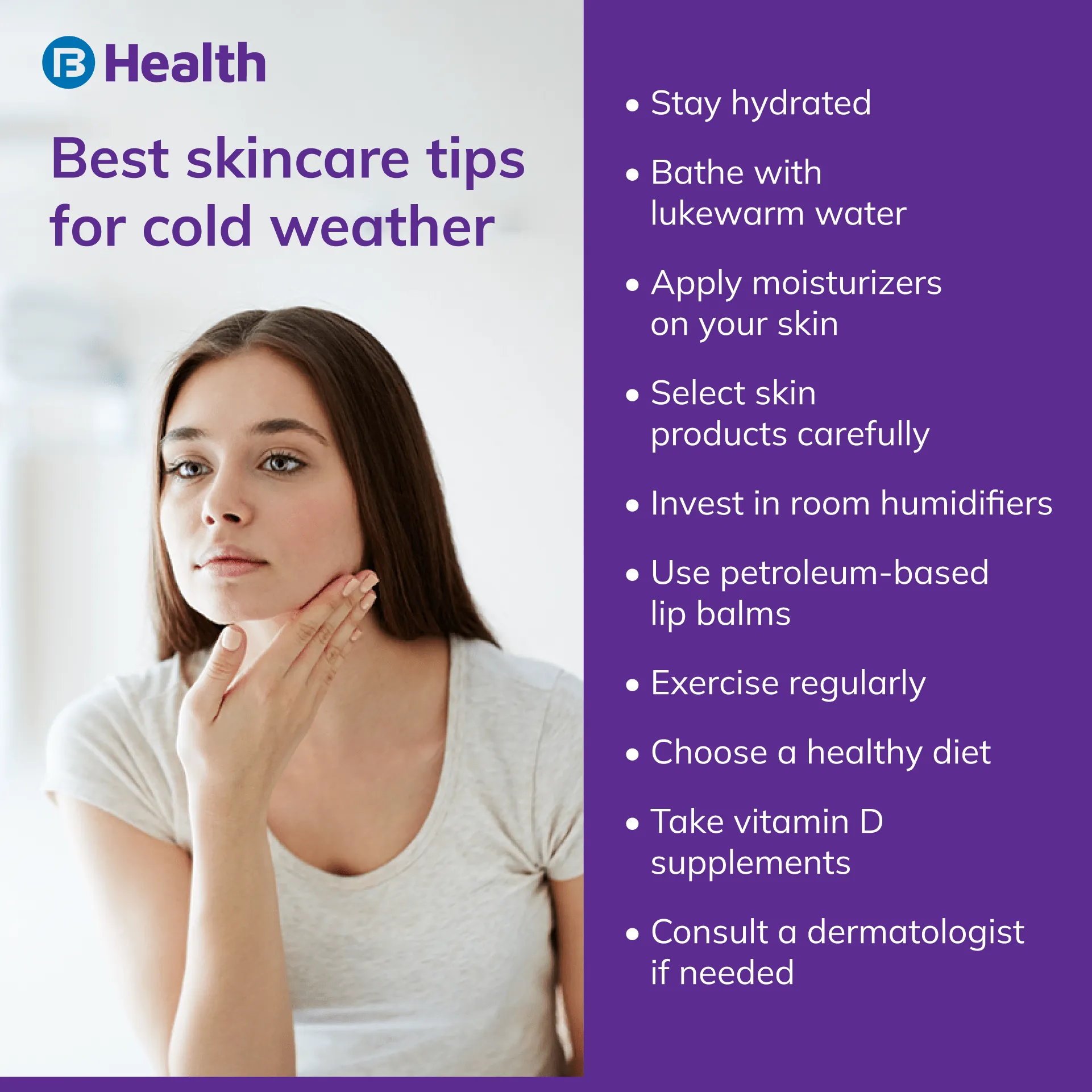
How Is Cold Urticaria Treated?
Cold Urticaria or Cold Hives has no cure, but specific treatments can help relieve symptoms. The primary medication is antihistamines. These reduce the symptoms by blocking the mechanisms by which the body reacts to cold.
There are also other stronger medications, like omalizumab, which uses monoclonal antibodies to treat the symptoms. However, avoiding all triggers is the best way to make your life easy. This practice requires you to keep a journal where you record each incident. You can then analyze this journal to determine which situations are sensitive to you.
Moreover, it would be safe to carry an epinephrine pen if you already have some other kinds of reaction to cold.
The first and foremost thing you need to do is stay away from the cold temperature if you have cold urticaria [3]. The condition goes away on its own. However, it can last longer in some cases. Although there is no cure available, the condition has certain treatments and can be managed by taking preventive steps. Your doctor may advise you to try a home remedy or ask you to take antihistamines.
Some prescription medications include non-drowsy antihistamines such as:
- loratadine (Claritin)
- cetirizine (Zyrtec)
- desloratadine (Clarinex)
Your doctor may also prescribe Omalizumab (Xolair), a drug used to treat asthma. This has been used effectively for treating people with this.
If your cold urticaria is due to an underlying health condition, you may need to take medications for that health problem too. Your doctor can also prescribe an epinephrine autoinjector to carry if you have a history of a systemic reaction.
Cold Urticaria Home Remedy
Listed are some of the effective home remedies to treat cold hives.
Cold compress
Take a cold pack and place it on the affected skin to get relief from hives. Placing a towel dipped into cold water on the rashes can help ease the itching caused by cold hives. You can also use ice packs as they have an anti-inflammatory effect. They will help soothe your skin by shrinking your pores.
Aloe vera
Rub the gel of the aloe Vera leaf to the affected area. You can also buy pure aloe vera gels and lotions. Aloe vera can help ease the burning sensation of skin rashes.
Coconut oil
The benefits of coconut oil are many. It can improve the health of your hair and skin. It is a natural moisturizer that has abilities to heal urticaria. It is rich in antimicrobial properties that reduce itching from hives and soothe your skin. Make sure that you use virgin oil to treat rashes.
Castor oil
The benefits of castor oil include its anti-inflammatory and anti-microbial properties that can help you reduce acne. With the help of the fatty acids in castor oil, you can restore uneven skin tones as well as help healthy skin tissues grow. You can also use it to keep urticaria symptoms at bay!
Additional Read: Skincare TipsTips & Prevention to Manage It
Here are a few tips that might be helpful along with your medication:
- First, avoid frozen and ice-cold foods, cold cosmetic procedures, or cold places near refrigerated shelves, pools, and mountain tops
- If the above scenarios are unavoidable, ensure you consult a doctor, take the histamines they prescribe, and carry an epinephrine pen
- Inform your doctor about all the procedures, including dental, medical, or childbirth
How Is Cold Urticaria Diagnosed?
The diagnosis requires a Cold Simulation Test or CST.
CST involves putting an ice cube on your skin and waiting for a reaction. If you see the reaction within two minutes, it is Acquired Cold Urticaria. And if you have to wait for at least 30 minutes, it may be Familial Cold Urticaria.
Some Questions Your Doctor May Ask
Do you have a history of these symptoms in your family?
When did you first start seeing rashes, and what was the most recent one?
Are there any medications you started taking recently?
Did you change your lifestyle recently?
What are the Conditions Related to Cold Urticaria?
Though rashes as a reaction to cold may be due to Cold Urticaria, there are other diseases with similar symptoms, and they are as follows:
Cold Agglutin Disease
A blood condition known as cold agglutin disease may also show similar symptoms. You will start to see rashes when your blood temperature drops below the body temperature
Raynold’s Disease
it mostly affects the blood vessels of fingers and toes. Raynold’s disease also causes blue colouration on toes and fingers, and you may experience spasms in blood vessels and pain
Paroxysmal
A condition where red blood cells get destroyed due to cold can also show symptoms similar to that of a Cold Urticaria. The name of the condition is Paroxysmal cold hemoglobinuria
If you experience any symptoms of this disease or find that cold weather is one of the persistent causes of dry skin, seek immediate medical help. You can even book an appointment and consult dermatologist online on Bajaj Finserv Health. By talking to a skin specialist, you can get the best skincare tips.
References
- https://rarediseases.org/rare-diseases/urticaria-cold/
- https://dermnetnz.org/topics/cold-urticaria
- https://gaapp.org/forms-of-urticaria/what-is-cold-urticaria/
Disclaimer
Please note that this article is solely meant for informational purposes and Bajaj Finserv Health Limited (“BFHL”) does not shoulder any responsibility of the views/advice/information expressed/given by the writer/reviewer/originator. This article should not be considered as a substitute for any medical advice, diagnosis or treatment. Always consult with your trusted physician/qualified healthcare professional to evaluate your medical condition. The above article has been reviewed by a qualified doctor and BFHL is not responsible for any damages for any information or services provided by any third party.

